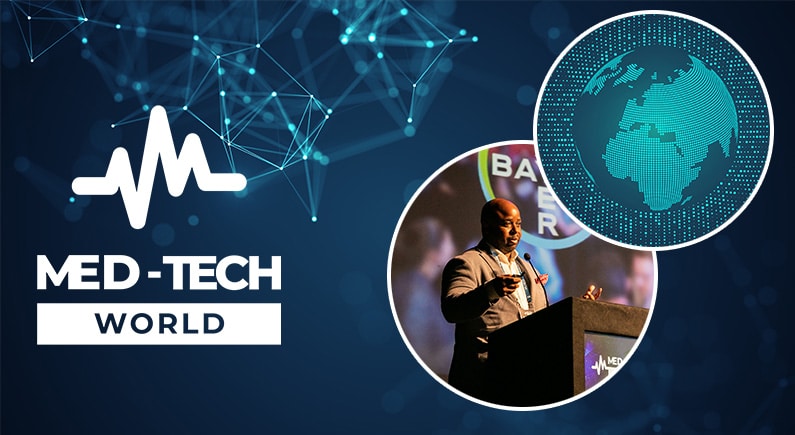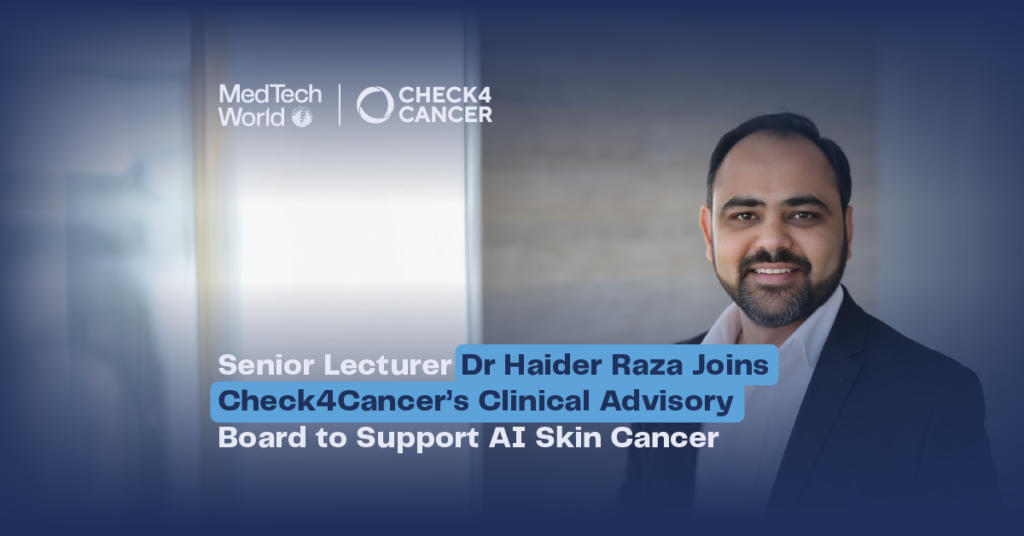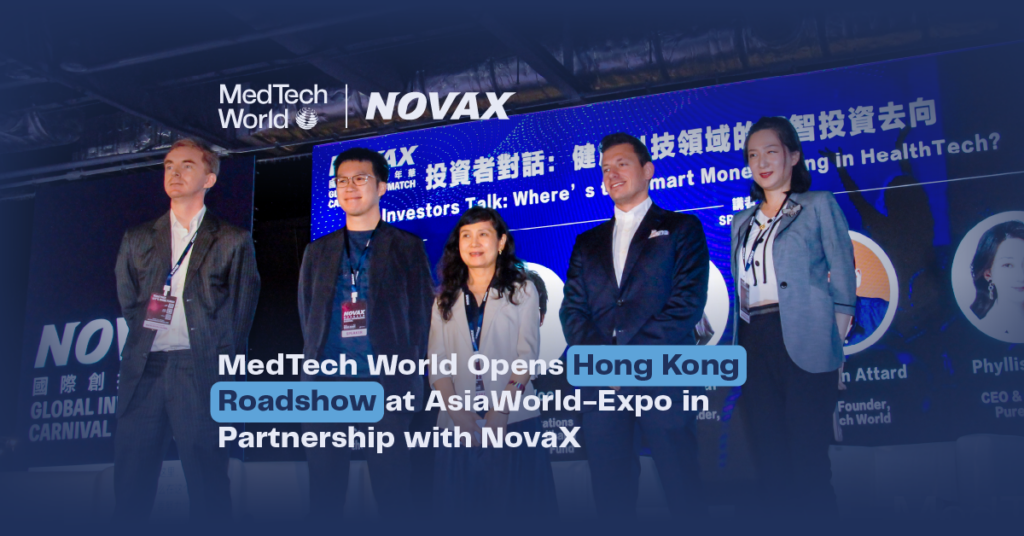
Michael Joe Cini
19th January 2022
[WATCH] The Future of Medical Artificial Intelligence in the Trans-Atlantic World with Dominick Kennerson at Med-Tech World 2021
With the international community on the verge of the Fourth Industrial Revolution, trade and commerce has become a vital aspect of emerging sectors such as medical technology and especially Artificial Intelligence
Dominick Kennerson leads a panel on the Trans-Atlantic partnership and how European AI legislation can come to have strong ramifications for the future of the continent’s technological edge. As the Global Head of Digital Health Partnerships for Bayer Pharmaceuticals, Dominick Kennerson forms part of a broader vanguard of med-tech and pharma-tech innovations. From this vantage point, he explores the way emerging policy and regulation can come to have extremely influential effects in the paths taken by private enterprise in the very near future.
He began by exploring the transatlantic alliance. While recent relations have been rocky due to populist politics, the United States and the European Union are extremely close allies on both a political and an economic level with the two blocs accounting for half of the global GDP and their trade amounting to more than a trillion dollars. Almost 164 thousand EU companies benefit from trade with the United States and 57% of these are SMEs, hence representing the future of the European economy as well as their more innovative start-ups. Medical technology already accounts for an extremely prominent part of this economic relationship with the pharmaceuticals composing the largest and second largest export for the EU and USA respectively.
In terms of partnership and innovation, the relationship is mainly maintained through the US and EU Trade and Technology Council (TTC) which covers the areas of trade, technological incentives, R&D, regulation and supply chain cooperation. After highlighting the importance of this relationship for both parties, Dominick then moved towards how the emerging sector of Artificial Intelligence had incredible potential to revolutionize healthcare as a whole with some of the sectors he highlighted including:
Pharmaceuticals through the optimization of research and clinical trials.
Diagnostics to detect diseases, symptoms or developments through biological and behavioral markers.
Patient monitoring in a safe and digital medium which would be extremely useful in a pandemic
And several others.
Moving towards the sector as a whole, Dominick noted that there were just over 31,000 key players in the development of AI with most of them being private ventures and 3000 being research institutions. In terms of international activity, China is the most active in terms of the development of artificial intelligence while the European Union tends to focus mainly on research, even while 60% of EU private companies either already do or plan to implement AI-based solutions. The United States sees a very strong domination of the burgeoning AI and healthcare market by private and otherwise commercial firms.
He then moved on to a crucial point in terms of the panel as a whole, the role of European regulation for both its local market as well as the broader Trans-Atlantic relationship. An example of this was data collection, which forms the pediment on which AI functions. Being governed by GDPR and other policy protocols regulating the transfer and ownership of data, the European Union requires that external firms operating outside its local market to adopt stringent localization programs to be able to enter the European market. This also makes it difficult for AI-based firms to truly prosper in Europe itself.
Which brought him to his final point, a review of the Artificial Intelligence Act. The Artificial Intelligence Act (AIA), is a proposed regulation by the European Commission that would act as the legislative framework for everything related to the implementation and utilization of Artificial Intelligence (barring military uses.) This works by mainly sorting AI into three categories: prohibited, high-risk and limited risk. The AIA is projected to cost firms located in the EU $10.9 billion per year until 2025, which would cost the economy $31 billion in total.
Due to the fact that AI is used for a broad variety of industries, the Act is expected to adversely affect $3.4 trillion of the EU’s GDP of $13.3 trillion, or more than 25% of the entire European economy. The ramifications would be even more acute for the digital health market which accounts for 10% of the very same GDP.
As a remedy for this aforementioned disruptions, Dominick noted the response made by the Digital Therapeutics Alliance in reference to the AIA which stressed the need for a more detailed definition of AI and its risk assessment under the legislation, harmonization with existing legislation such as the Medical Device Regulations 2017/745 and 2017/746, clarity on its alignment with current frameworks such as the In Vitro Diagnostics Regulation and stressed the need that the EU “further evolve this regulation to ensure it is both understandable and feasible for SMEs and start-ups” due to both the financial implications of the AIA as well as difficult-to-quantify costs such as brain-drain and deterred investment.
As a final point, Dominick referred to the point that Malta had great potential to affect European-level legislation due to both the presence of Roberta Metsola as the then-vice president of the European Parliament who has since risen to acting President due to the unfortunate passing of David Sassoli before being elected incumbent president on the 18th of January 2022. He also noted that several Maltese members of parliament were acting members of AI committees which only emphasized his point.
For more informative panels from Med-Tech World, click here.
About Med-Tech World:
It is now estimated that the global digital health market will increase to around $640 billion by 2026. Through our expertise coupled with optimized networking, we will ensure that both investors and startups are on the ground floor of this health revolution. The event which is organized and curated alongside a team of doctors, attracts legislators and policymakers, medical professionals, and investors from across the world, addresses the opportunities and challenges driving this million-dollar forum.




